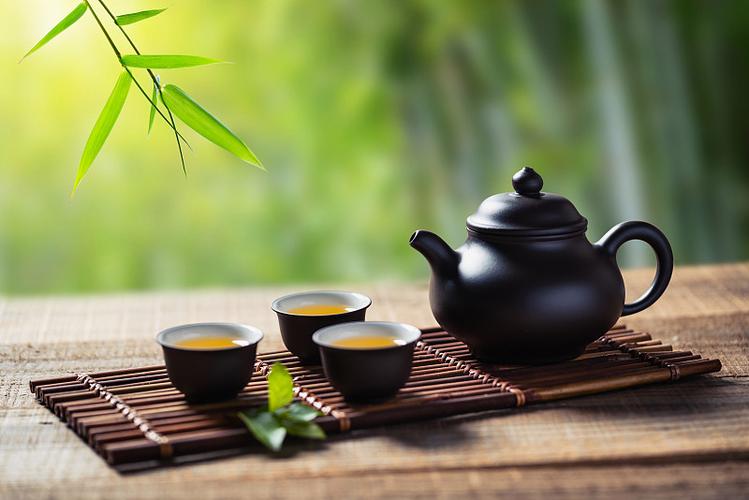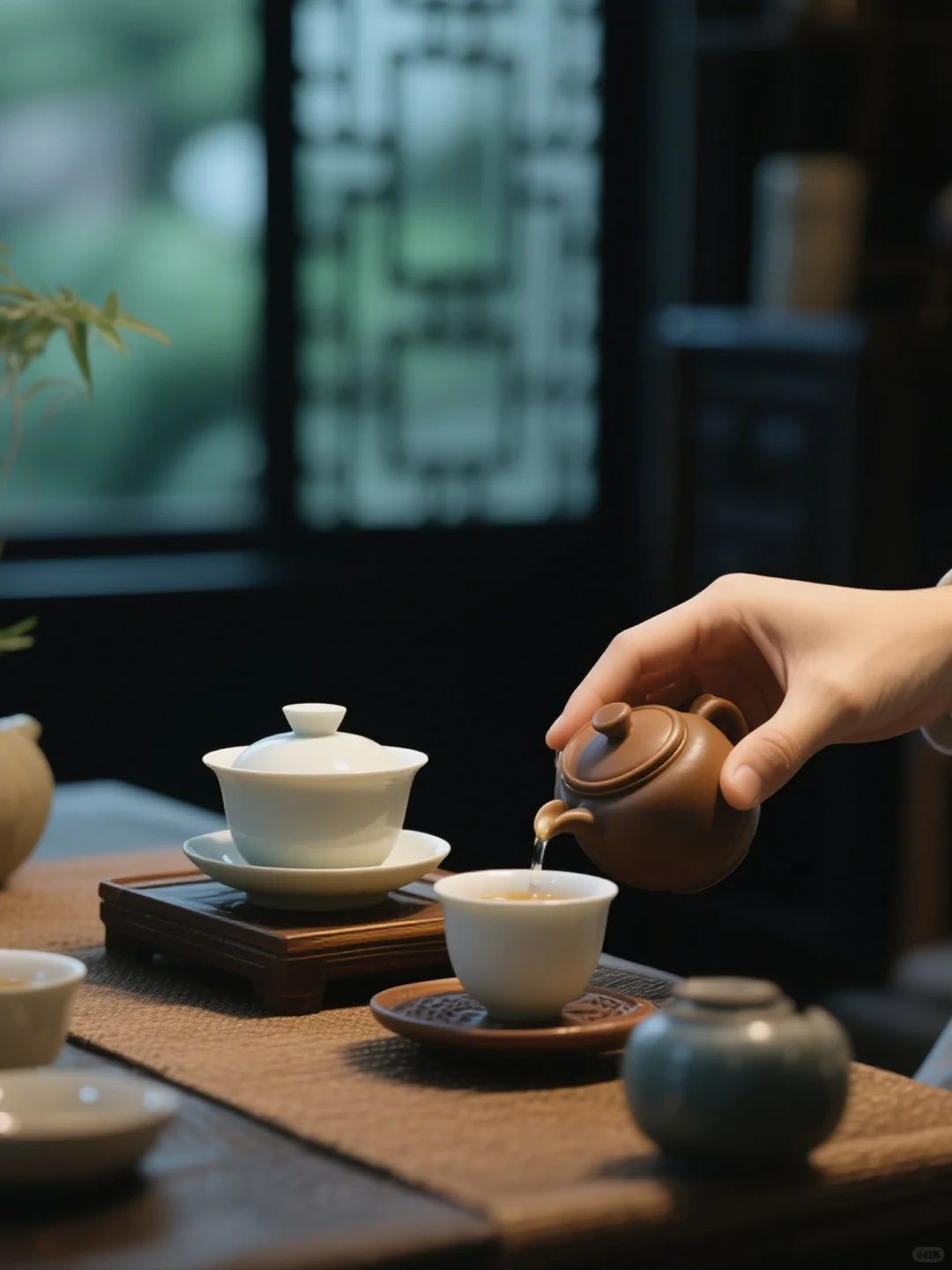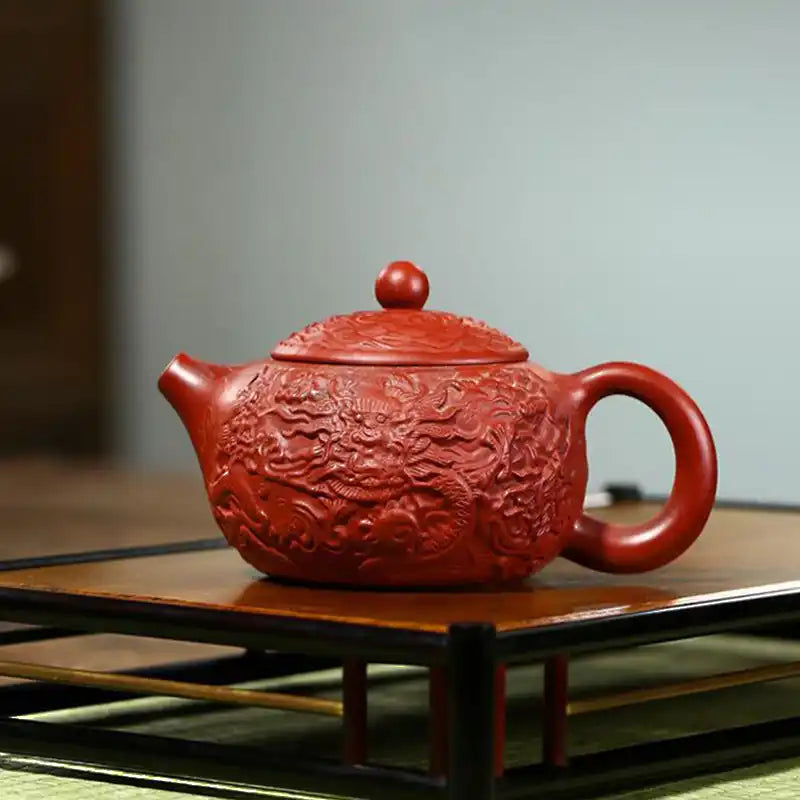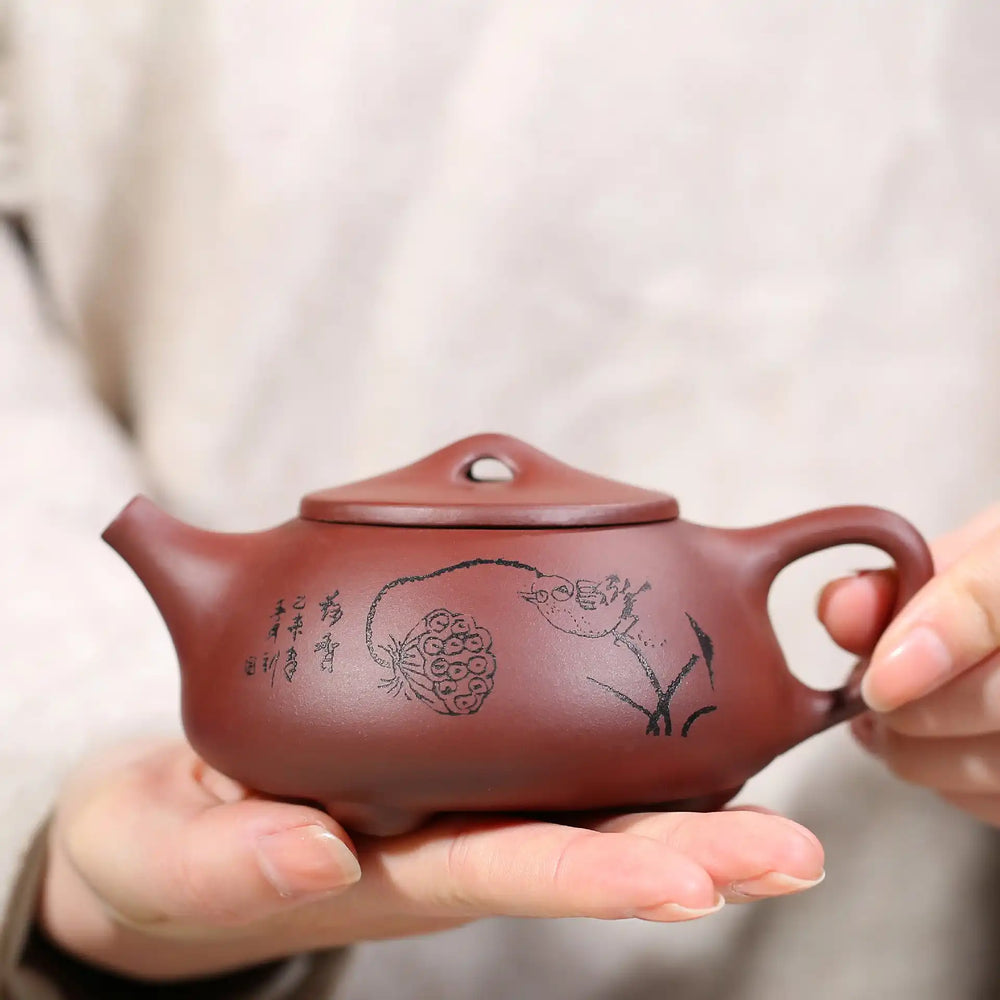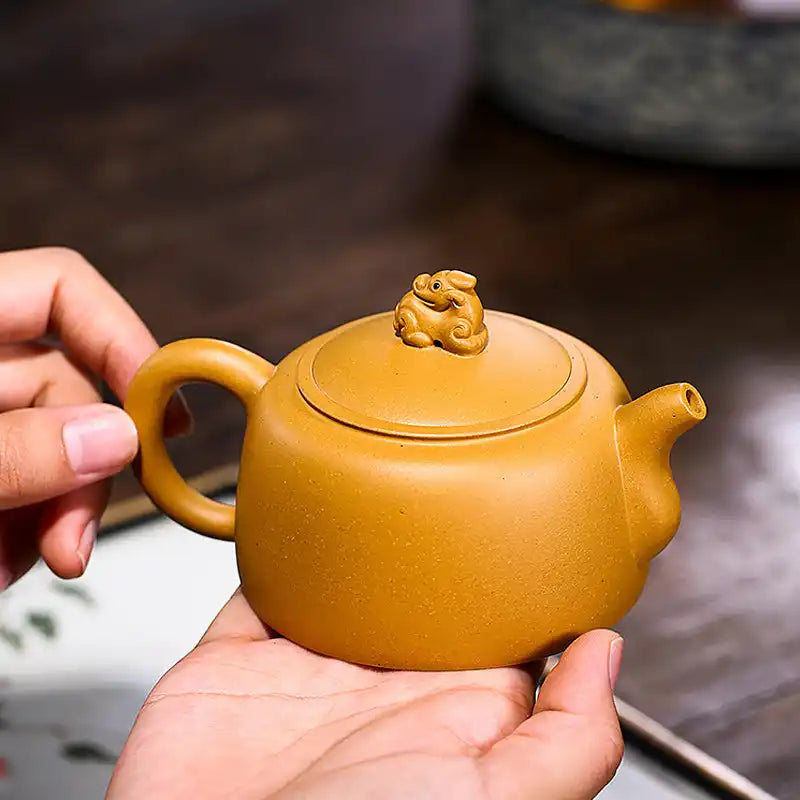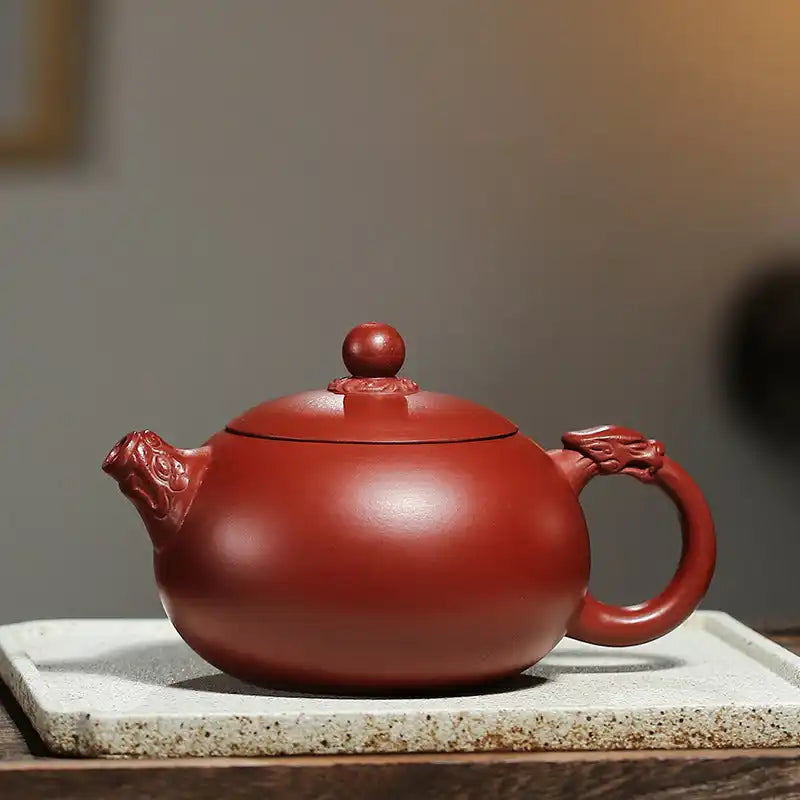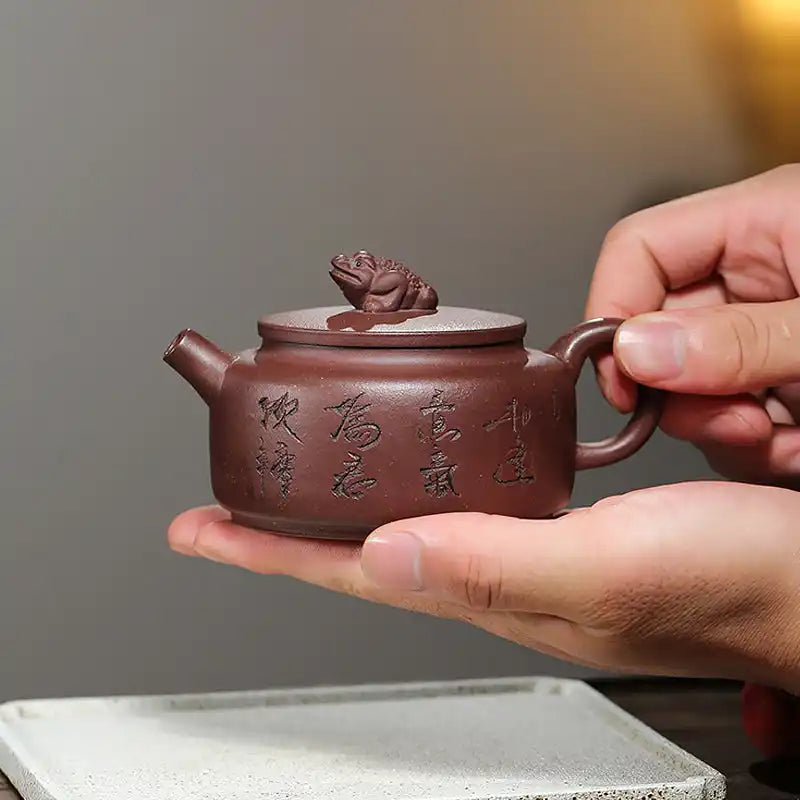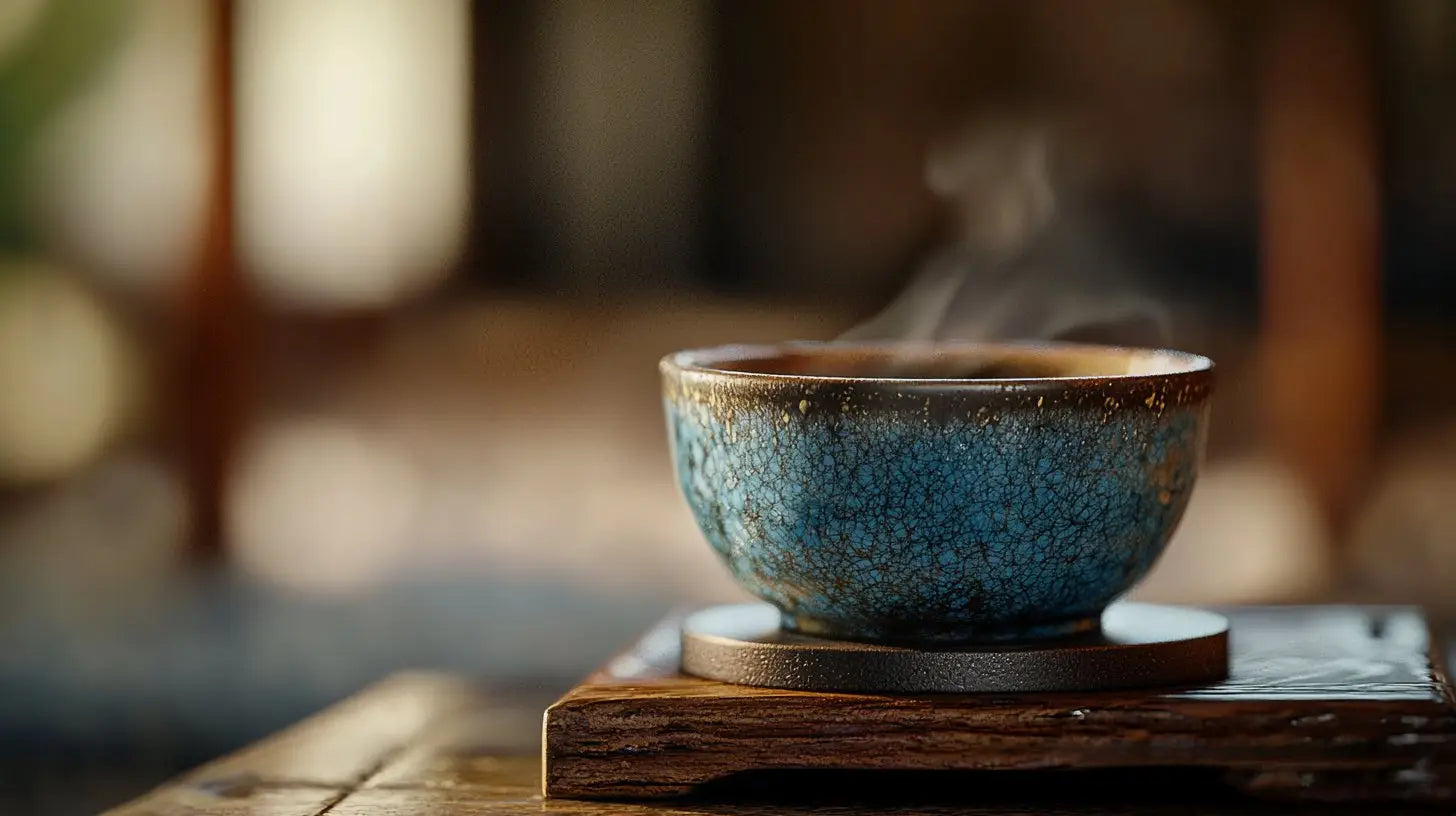🍃 Le voyage intemporel de la culture du thé chinois 🍃
Découvrez 5 000 ans d'histoire du thé chinois - de la découverte accidentelle du légendaire empereur Shen Nung aux cérémonies du thé sophistiquées qui continuent de captiver le monde aujourd'hui.

🌟 Le début mythique : la découverte de l'empereur Shen Nung (2737 av. J.-C.)
Dans les brumes de la Chine antique, vers 2737 av. J.-C. , un heureux hasard changea le cours de l'histoire humaine. L'empereur Shen Nung (神农氏), surnommé le « Fermier Divin », faisait bouillir de l'eau sous un théier sauvage lorsque plusieurs feuilles dérivèrent dans sa théière.
Selon la légende, l'empereur remarqua que l'eau prenait une teinte dorée et, en la goûtant, découvrit une boisson rafraîchissante qui revigorait le corps et l'esprit. Cette découverte fortuite marqua la naissance de la culture du thé en Chine .
« Le thé est l'élixir de vie, découvert par la providence divine pour nourrir le corps et éclairer l'esprit. » - Ancien proverbe chinois

🏛️ L'évolution à travers les dynasties chinoises
Dynastie Zhou (1046-256 av. J.-C.) : le thé comme médicament
Sous la dynastie Zhou , le thé était principalement apprécié pour ses propriétés médicinales. Les médecins chinois de l'Antiquité reconnaissaient ses vertus :
- Améliorer la digestion et le métabolisme
- Améliorer la clarté mentale et la concentration
- Assure une détoxification naturelle
- Renforcer la fonction du système immunitaire
Les premières traces écrites de consommation de thé remontent à cette période, établissant le thé à la fois comme remède curatif et comme boisson quotidienne.
Dynastie Tang (618-907 apr. J.-C.) : l'âge d'or du thé
La dynastie Tang a marqué le véritable âge d'or de la culture du thé en Chine. Cette période a été marquée par :
« Le Classique du thé » (茶经) de Lu Yu – Écrit vers 760 apr. J.-C., ce chef-d'œuvre est devenu le premier guide complet au monde sur la culture, la préparation et l'appréciation du thé. Lu Yu a élevé le thé du statut de simple boisson à celui d'art.
La naissance des cérémonies du thé : rituels élaborés développés autour de la préparation du thé, mettant l'accent sur la pleine conscience, le respect de la nature et l'harmonie sociale.
Expansion de la route commerciale : le thé a commencé son voyage le long de la célèbre Route du thé et des chevaux , propageant la culture du thé chinois au Tibet, en Asie centrale et au-delà.

Dynastie Song (960-1279) : raffinement et innovation
La dynastie Song a apporté une sophistication sans précédent à la culture du thé :
Cérémonies du thé fouetté : La célèbre méthode du « thé fouetté » consistait à moudre des feuilles de thé en poudre et à les fouetter avec de l'eau chaude - un précurseur des cérémonies japonaises du matcha.
Concours impériaux de thé : l'empereur Huizong lui-même participait à des concours de thé, jugeant les thés en fonction de la couleur, de l'arôme et de la qualité de la mousse.
Bols à thé Jian Zhan : La création des légendaires bols à thé Jian Zhan avec leurs glaçures mystiques à taches d'huile est devenue le summum de l'art des récipients à thé.
Dynastie Ming (1368-1644) : la révolution moderne du thé
La dynastie Ming a révolutionné la culture du thé en :
Innovation en matière de feuilles en vrac : Passer des galettes de thé compressées à l'infusion en feuilles en vrac, créant ainsi la base des méthodes modernes de préparation du thé.
Développement des théières : Les célèbres théières en terre violette de Yixing ont été perfectionnées à cette époque. Découvrez notre collection de théières Yixing authentiques qui perpétuent cette tradition vieille de 600 ans.
Classification du thé : La catégorisation systématique des thés en six grands types que nous connaissons aujourd'hui : thés verts, noirs, blancs, oolong, pu-erh et jaunes.

🍃 Les six trésors : les types de thé traditionnels chinois
🌱 Thé vert
Non oxydé, frais et herbacé. Les variétés les plus connues sont le Longjing et le Bi Luo Chun.
Découvrez les thés verts🖤 Thé noir
Entièrement oxydé, robuste et malté, le Keemun et le Lapsang Souchong sont des variétés prisées.
Découvrez les thés noirs🌸 Thé Oolong
Partiellement oxydé, complexe et floral. L'équilibre parfait entre thé vert et thé noir.
Essayez les thés Oolong🤍 Thé blanc
Peu transformée, délicate et subtile, la Silver Needle est la variété la plus prisée.
Collection de thé blanc🍂 Thé Pu-erh
Fermenté et élevé, terreux et complexe. Se bonifie avec le temps, tel un bon vin.
Thés Pu-erh vieillis🎋 L'art de la cérémonie du thé Gongfu
La cérémonie du thé Gongfu (功夫茶) représente le summum de la culture du thé chinoise, mettant l'accent sur :
Éléments essentiels :
- Préparation consciente : chaque mouvement est délibéré et méditatif
- Équipement approprié : théières traditionnelles Gaiwan ou Yixing
- Qualité de l'eau : Eau pure et douce chauffée à des températures précises
- Appréciation du thé : observer la couleur, inhaler l'arôme, savourer le goût
- Harmonie sociale : partager le thé crée des liens et témoigne du respect
Les sept étapes du thé Gongfu :
- Réchauffer les récipients - Rincer la théière et les tasses à l'eau chaude
- Mesurer le thé - Utiliser le bon rapport thé/eau
- Réveil des feuilles - Rinçage bref pour ouvrir le thé
- Première infusion - Trempage court pour une saveur initiale
- Servir avec grâce - Verser en mouvements circulaires pour une force uniforme
- Apprécier ensemble - Observer, sentir et goûter en pleine conscience
- Infusions multiples - Chaque infusion révèle de nouvelles saveurs

🌍 Le voyage mondial du thé : de la Chine au monde
8e siècle : les moines bouddhistes ont apporté la culture du thé chinois au Japon, évoluant vers la cérémonie du thé japonaise
XVIIe siècle : les commerçants hollandais introduisent le thé chinois en Europe, déclenchant le commerce mondial du thé
XVIIIe siècle : la Boston Tea Party a souligné l'importance politique du thé dans l'histoire américaine
XIXe siècle : les plantations de thé coloniales britanniques en Inde et à Ceylan ont remis en cause le monopole de la Chine sur le thé
XXIe siècle : Renaissance mondiale de la culture du thé chinois mettant l'accent sur l'authenticité et le bien-être
🧘 La culture moderne du thé : une sagesse ancestrale pour la vie contemporaine
Dans notre monde moderne au rythme effréné, la culture traditionnelle du thé chinois offre :
Avantages pour le bien-être :
- Réduction du stress : boire du thé en pleine conscience comme pratique de méditation
- Pouvoir antioxydant : composés naturels favorisant la santé et la longévité
- Clarté mentale : la L-théanine favorise la concentration calme
- Connexion sociale : les cérémonies du thé favorisent des relations significatives
Applications modernes :
- Bien-être en entreprise : les pauses thé remplacent la culture du café
- Pratique de la pleine conscience : méditation au thé dans les centres de bien-être
- Arts culinaires : Cuisine et cocktails à base de thé
- Rituels à la maison : créer des moments de paix dans la vie quotidienne
Découvrez cette tradition ancestrale avec nos services à thé Gongfu complets conçus pour les amateurs de thé modernes.

🎁 Ramener la culture du thé chez soi : votre voyage commence
Que vous soyez un débutant curieux ou un amateur de thé chevronné, adopter la culture du thé chinois enrichit la vie avec :
- Pleine conscience quotidienne : transformer la routine en rituel
- Appréciation culturelle : connectez-vous à 5 000 ans de sagesse
- Bienfaits pour la santé : Le bien-être naturel grâce aux connaissances traditionnelles
- Lien social : partagez des moments significatifs avec les autres
Commencez votre voyage autour du thé :
Découvrez nos collections soigneusement sélectionnées :
- Bols à thé Jian Zhan authentiques : découvrez l'élégance de la dynastie Song
- Théières traditionnelles de Yixing - Artisanat de la dynastie Ming
- Thés chinois haut de gamme - Des jardins anciens à votre tasse
- Mystical Tea Pets - Apportez chance et joie à votre table à thé
🌟 Conclusion : La Coupe Éternelle
De la découverte fortuite de l'empereur Shen Nung à la renaissance mondiale actuelle du thé, la culture chinoise du thé représente la plus longue tradition de boisson ininterrompue de l'humanité. Chaque tasse nous connecte à des millénaires de sagesse, d'art et de pratique spirituelle.
Dans un monde en constante évolution, le rituel ancestral de la préparation du thé nous invite à ralentir, à respirer profondément et à trouver la paix dans des moments simples. Que vous savouriez un délicat thé blanc du Fujian ou que vous pratiquiez une cérémonie Gongfu complète entre amis, vous participez à une tradition vivante qui nourrit le corps et l'esprit depuis plus de 5 000 ans.
« Mieux vaut être privé de nourriture pendant trois jours que de thé pendant un jour. » – Ancien dicton chinois

Prêt à vous lancer dans l'aventure du thé ? Découvrez notre collection complète de coffrets de cérémonie du thé chinois authentiques et de thés en vrac haut de gamme , chacun perpétuant l'héritage intemporel de la culture du thé chinoise.
